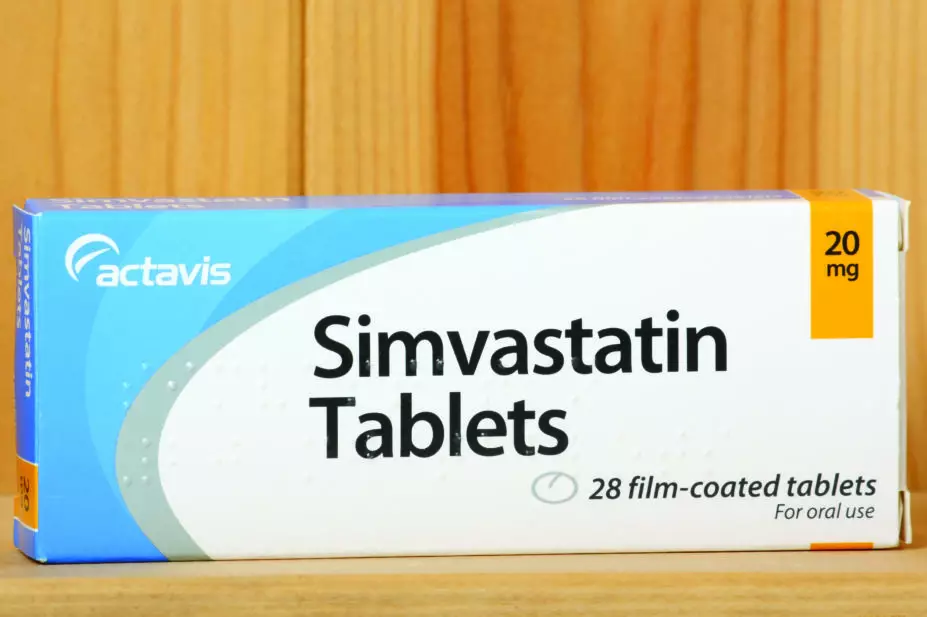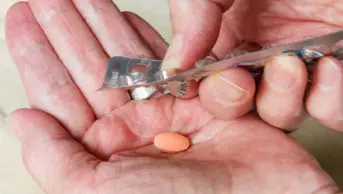
Shutterstock.com
The potential of the cheap cholesterol-lowering drug simvastatin as a treatment option for multiple sclerosis is to be investigated in a phase III trial involving more than 1,000 patients.
The trial will be led by Jeremy Chataway, a researcher at the UCL Institute of Neurology, who conducted a previous smaller phase II trial, the results of which were published in The Lancet
[1]
in 2014 and suggested that simvastatin appeared to be a treatment option worthy of further investigation.
The phase III trial will involve 1180 patients with secondary progressive MS, for which there are currently no licensed treatments that can slow or stop disability progression, who will be recruited by 30 centres across the UK. The trial will take six years to complete, with the first patients receiving treatment later this year.
Chataway said: “This drug holds incredible promise for the thousands of people living with secondary progressive MS in the UK, and around the world, who currently have few options for treatments that have an effect on disability. This study will establish definitively whether simvastatin is able to slow the rate of disability progression over a three-year period, and we are very hopeful it will.”
In the two-year phase II trial, which included 140 patients, simvastatin 80mg per day reduced the annual rate of brain atrophy by 43% relative to placebo and was safe and well tolerated. Those patients treated with simvastatin also had better disability scores at the end of study.
The phase III trial will cost almost £6 million and is being funded by collaboration between the National Institute for Health Research, the MS Society (UK), the National MS Society (US), the NHS and UK universities.
Michelle Mitchell, chief executive of the MS Society, said: “We’re incredibly proud to be co-funding the simvastatin trial. This is a momentous step forward in our quest to find an effective treatment for progressive MS. More than 100,000 people in the UK are living with MS and this research will offer a huge amount of hope to the majority of them.”
Jayne Lawrence, spokesperson for the Royal Pharmaceutical Society, said: “The idea of repurposing a drug and giving it ‘new life’ is becoming increasingly popular. As our understanding of physiology, and how it is affected by disease, grows ever-more sophisticated, it is increasingly being realised that a drug may have an effect on more than one disease.
“Taking a drug from discovery through formulation and clinical trials to a marketed medicine is an expensive, complex and lengthy process. Investigating the possible uses of simvastatin in people with secondary progressive MS is a very exciting step and by re-examining this drug it’s possible that a treatment could emerge in far less time and with far less cost than the traditional route.”
Simvastatin is a cheap drug, and is widely used to lower cholesterol in patients at heightened risk of cardiovascular events such as strokes and heart attacks. In recent years questions have been raised about their risk-to-benefit profile after some patients reported adverse effects such as muscle pain and weakness and stopped using the drugs. However, a recent study[2]
suggests that muscle pain and weakness are unlikely to be directly caused by statins, but may instead be due to the so-called nocebo effect, where the expectation of side effects can make patients more likely to report them.
References
[1] Chataway J, Schuerer N, Alsanousi A et al. Effect of high-dose simvastatin on brain atrophy and disability in secondary progressive multiple sclerosis (MS-Stat): a randomised, placebo-controlled, phase 2 trial. Lancet 2014;383:2213-21. doi: 10.1016/S0140-6736(13)62242-4
[2] Gupta A, Thompson D, Whitehouse A et al. Adverse events associated with unblinded, but not with blinded, statin therapy in the Anglo-Scandinavian Cardiac Outcomes Trial—Lipid-Lowering Arm (ASCOT-LLA): a randomised double-blind placebo-controlled trial and its non-randomised non-blind extension phase. Lancet 2017; online 2 May 2017. doi: 10.1016/S0140-6736(17)31075-9


